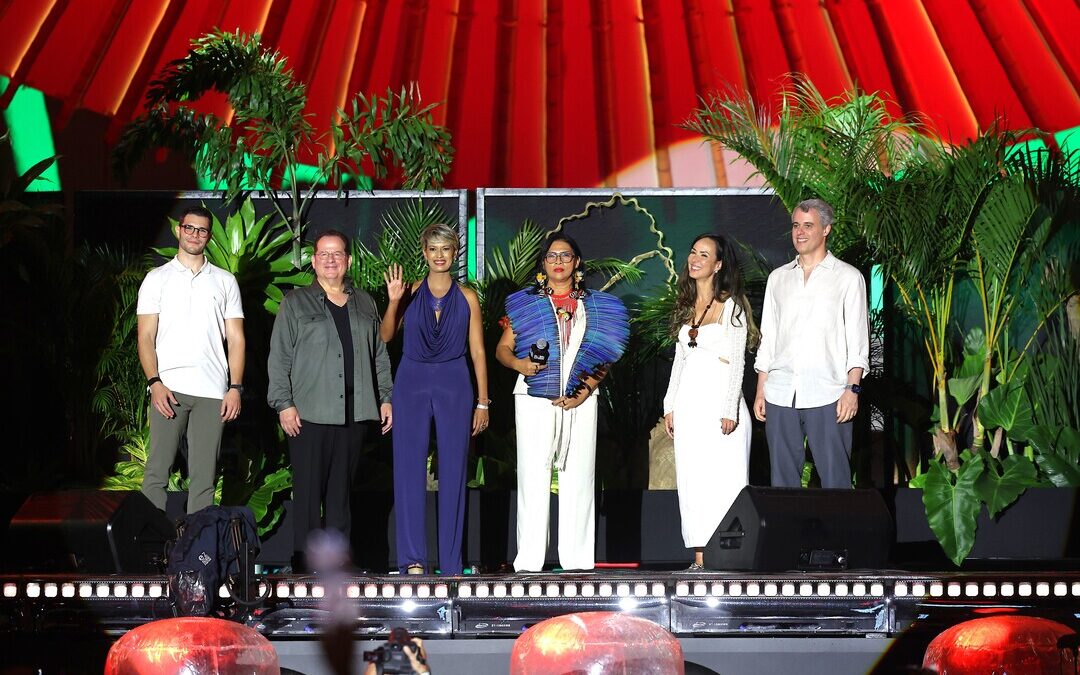Indigenous Amazon Bond Attracts $160M to Boost Forest Conservation
Everland’s Indigenous Amazon Outcome Bond attracts $160 million to boost forest conservation and empower local communities across the Amazon.
U.S.-based Everland has received $160 million in letters of intent from companies seeking to buy carbon credits from Indigenous- and community-centered forest conservation projects in the Amazon, marking renewed investor confidence in high-quality conservation finance.
The commitments, announced at the Global Citizen Festival: Amazônia in Belém, come under the Indigenous Amazon Outcome Bond initiative. The bond aims to provide $50 million in upfront financing to develop up to 20 new REDD+ forest conservation projects verified under the Equitable Earth Standard.
REDD+ stands for Reducing Emissions from Deforestation and Forest Degradation, plus the conservation, sustainable management of forests and enhancement of forest carbon stocks.
So far, 23 project groups representing about 90,000 local and Indigenous people across 17 million hectares of rainforest have expressed interest. A first wave of five projects is expected to be selected by the end of 2025.
Everland said fully executed forward purchase agreements will enable these projects to secure financing through the bond mechanism, which is projected to channel $1 billion to communities over ten years.
Communities to Receive Majority of Revenue
Funds will support conservation activities and generate verified carbon credits over the 40-year lifespan of the projects. Communities in Brazil will receive at least 70 percent of the revenue to invest in self-determined goals, according to Everland.
Concita Sompré, an Indigenous leader of the Gavião Kyikatejê people, called the initiative “the kind of private sector action that climate justice demands.” She told the crowd, “Through this bond, we see Indigenous leadership and the private sector come together with one shared purpose.”
The initiative will prioritize projects in landscapes forming part of Panthera’s Jaguar Corridor, which connects and protects jaguar habitats. Panthera will act as a biodiversity adviser, sharing expertise in monitoring apex species and their ecological impacts.
“This initiative takes us closer to realizing the vision of the Jaguar Corridor first championed by Dr. Alan Rabinowitz,” said Panthera CEO Frédéric Launay. “It drives a paradigm shift in conservation finance that values the bond between communities and wildlife.”
A New Benchmark for Climate Integrity
Manuela Yamada, director of certification at Equitable Earth, said the initiative sets a “new benchmark for integrity and impact in nature-based finance.” She added that the model ensures climate finance directly reaches the communities protecting forests.
Beto Borges, of Forest Trends, said the level of interest shows the world is “finally beginning to recognize what Indigenous Peoples have always known: protecting forests is inseparable from supporting the communities who safeguard them.”
A United Nations report in October said global spending on forest protection must triple by 2030 to meet climate and biodiversity goals. Despite being the primary guardians of the world’s forests, Indigenous groups receive only a fraction of the investment needed for forest conservation.
Everland’s Executive Chairman Gerald Prolman urged corporations to act swiftly. “The question is no longer if we can act, but whether we will—while there’s still time,” he said.
The REDD+ carbon market has struggled amid buyer uncertainty and outdated verification systems. Yet, the emergence of the Equitable Earth Standard appears to have reignited demand.
Everland said the $160 million in indicative interest represents a crucial step toward restoring market confidence and scaling Indigenous-led forest conservation efforts in the world’s largest rainforest.
Also Read:
Amazon Conservation Gains Momentum With New Green Finance Agreement
Nirmal Menon
Related posts

Subscribe
Error: Contact form not found.


